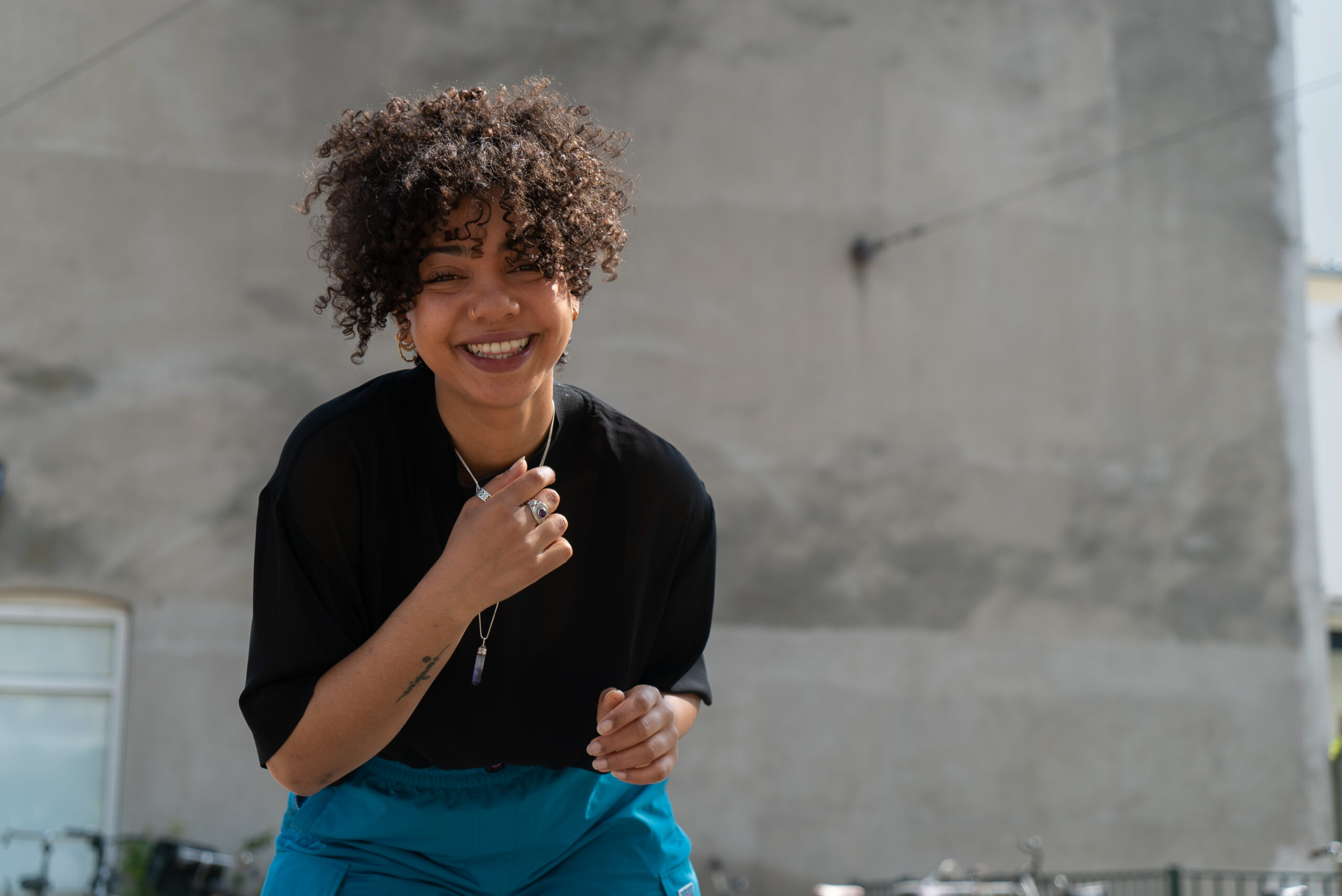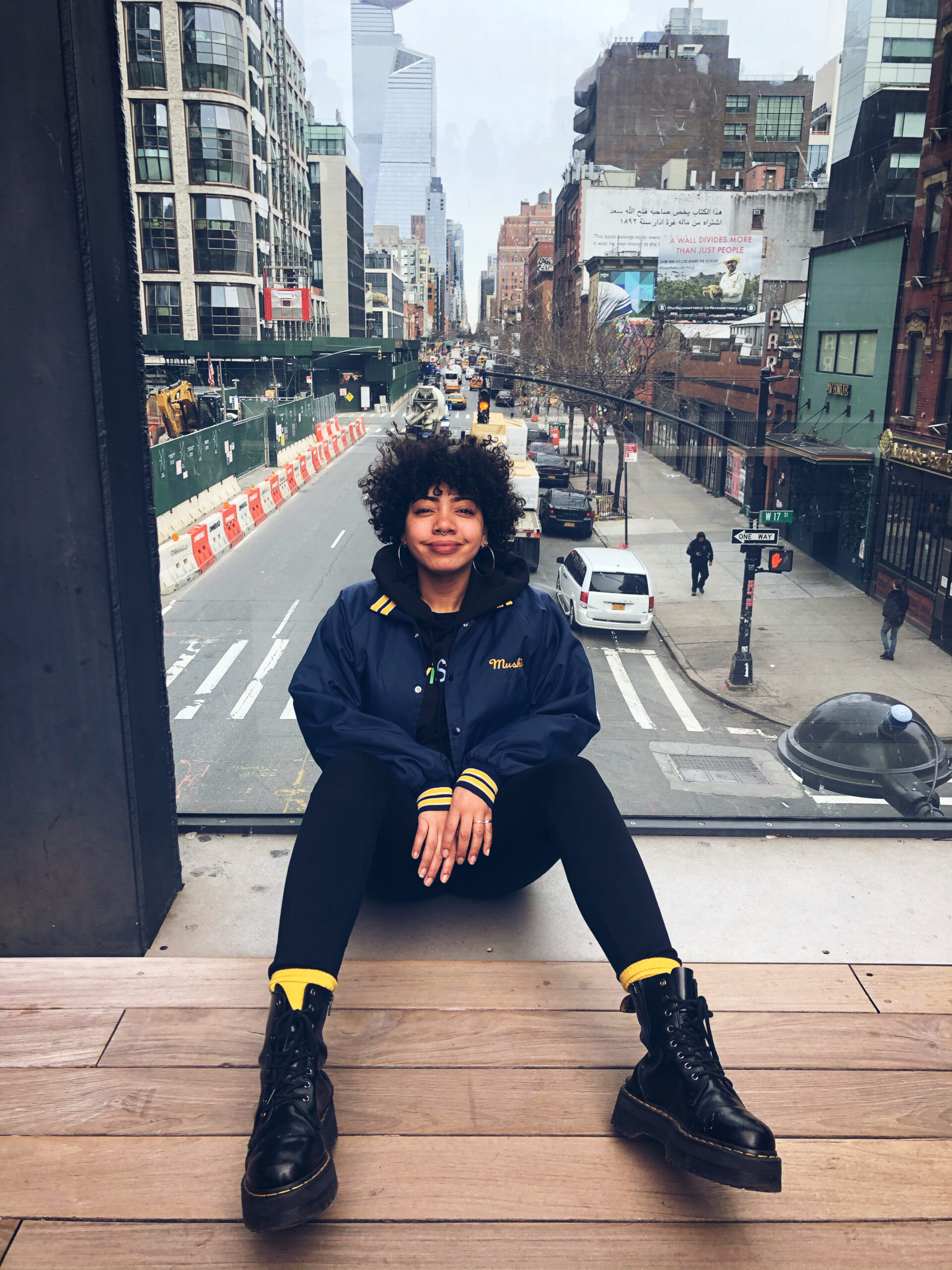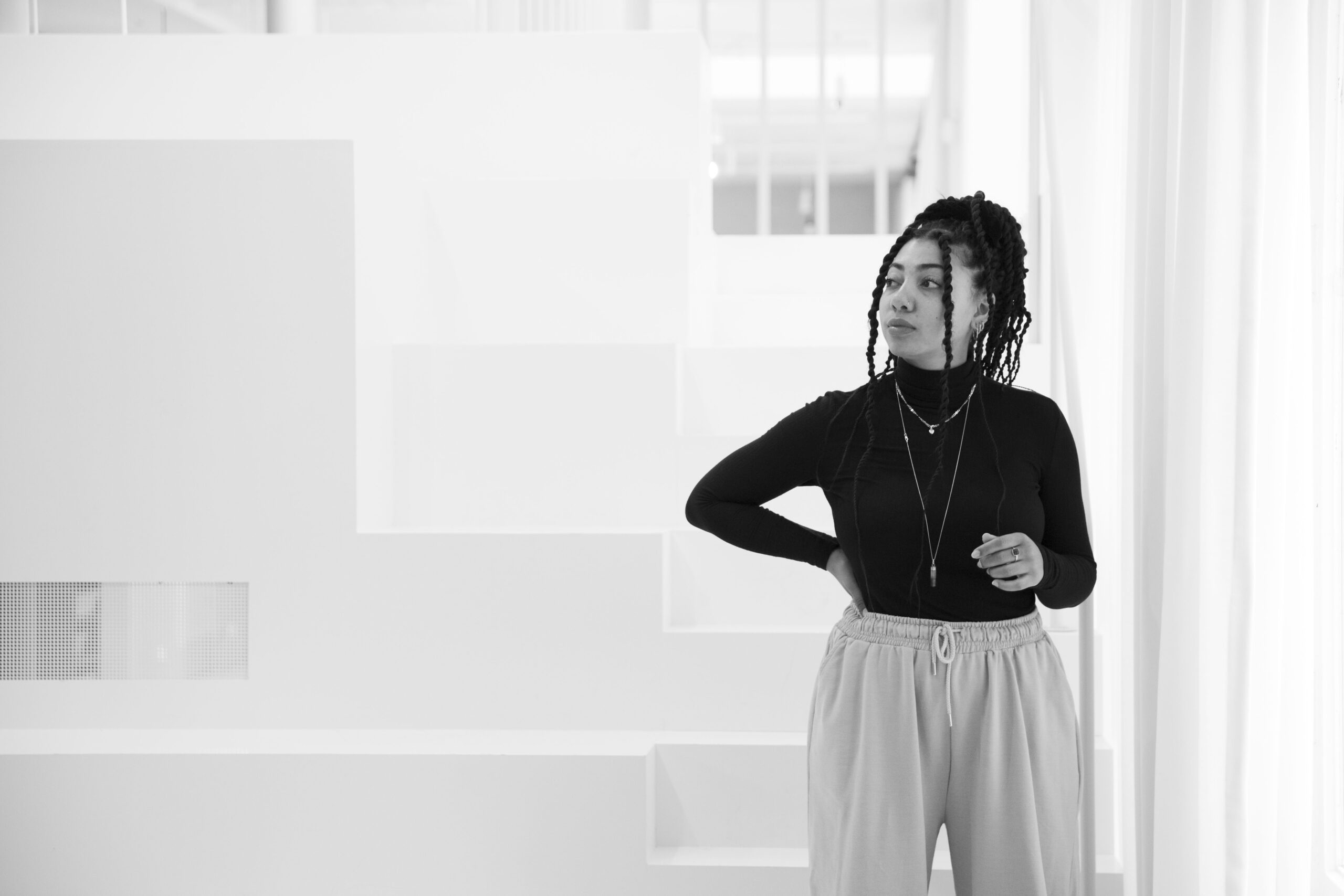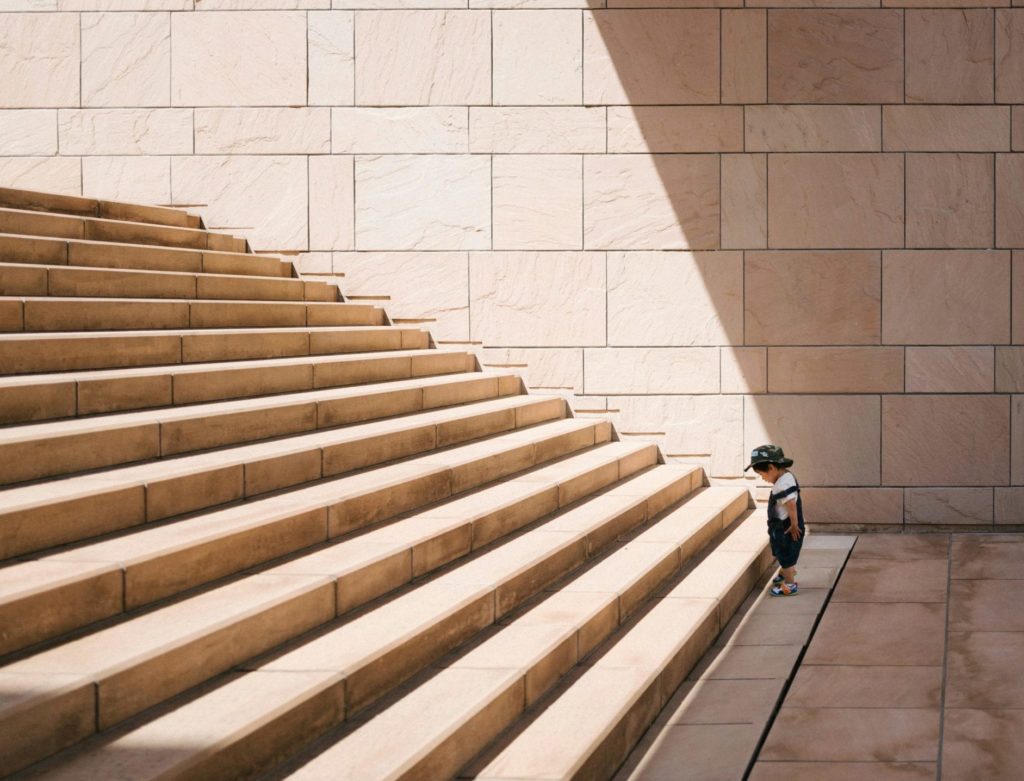
“I talk about how I experience society” – Roziena Salihu
Roziena Salihu is always looking for the right words for the right moment. With her spoken word art, stories and poems, she tours the Dutch theaters. She also uses her words to make film, television and theater performances. “I think it would be really cool to write and direct a feature film.”
Why is it so nice when words sometimes rhyme?
“Haha, why is it so nice when words sometimes rhyme? For me, it creates rhythm in a text. I personally really like near rhyme, so things don’t rhyme literally per se. I never really thought about it actually, but rhyme just sounds good.”
What’s the most beautiful word in the Dutch language?
“I think universa (universes) is a very beautiful word. But I don’t think it even exists. It’s supposedly the plural of universe, but as far as I know there is only one of those.”
When did you realise that you can achieve things with your words?
“For a long time, I used to write as a hobby. I also had a part time job and did some paid jobs here and there. Over time, I started getting more and more paid assignments. Until at one point I thought: Oh, what started as a hobby is now taking over my whole week. That’s when I quit my part time job, haha. But the first time I realised the impact of my words was during a spoken word performance at Rode Hoed in Amsterdam. It was at a meeting about women’s emancipation and I performed a text on this theme. It was the right moment for the right words.”

What are your favourite themes to write about?
“Personally, there are no specific themes I prefer to write about. Lately, I’ve mostly been writing on commission. Unfortunately, I’ve not been writing as much for myself anymore as I would like lately. An artist once said to me: ‘An artist always tells the same story over and over, but each time in a different way” and I do recognise that. My texts are social in nature and often deal with a sense of belonging: where do you belong, where do you feel at home, where do you feel accepted? I talk about how I experience society.”
What art form suits your stories best?
“I think it depends on the story. I really enjoy doing different things: interviewing, directing, filming, writing. It usually starts with an idea I’d like to share. Then I’ll investigate how that story is best told. The documentary I made (Fufu with applesauce, ed.) could also have been a poetic spoken word text, for example.
How do you make sure that your work is actually seen and read?
“Since all theatres and events are closed, many parties want to do something with video. Everything you can think of regarding spoken word is cast in the form of video. And because everything is now online, people find me more easily. The number of assignments I get because of this has tripled. So I think it’s important that people are able to find your work when they google you. And in addition, I often get assignments through word of mouth.”
Do you have any routines when writing?
“For a spoken word text I start by doing research on the client and the theme. Then I write four or five good opening sentences. I’ll leave it there for a day. The next day, I finish the text. Sometimes that only takes an hour, sometimes I need to have five coffees and three lunches first. When writing longer texts, such as for theatre or film, I can slip into a hyperfocus. Once I start, I can write for eight hours straight and I forget to eat lunch or dinner. I don’t actually stop working until I’m satisfied. If I get stuck, things get nasty. I can just leave a piece lying around for two weeks, because I don’t know what direction to take.”

What are you working on at the moment?
“I’ve now come to a point that allows me to sometimes say no to things I don’t like doing every week very much. I do write spoken word texts on a weekly basis. In addition, I’m being asked for voice-overs more often, which is nice for variety. I also wrote a theatre script last year and we’re now investigating, with a group of people, what it would take to bring it into production. And because December was a bit quieter, I started writing a script for a TV series.”
Are there certain things you dream of achieving?
“That’s always shifting really. If you’d told me ten years ago about all the things I’ve been able to do so far, I would’ve said: Fine, sign me up! But now I do find myself kind of looking for the next ‘victory’, I guess. I think it would be really cool to write and direct a feature film. I’ve never done that. I think I can learn a lot from it.”



